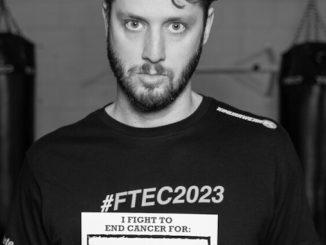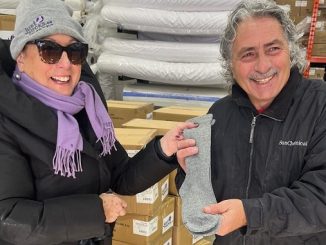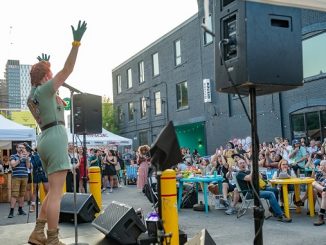Across Boundaries provides equitable and holistic mental health and addiction services for racialized and Black communities across the Greater Toronto Area. We got to speak with Aseefa Sarang, their Executive Director, to find out more about them.

Describe your charity/non-profit/volunteer work in a few sentences.
Across Boundaries provides equitable and holistic mental health and addiction services for racialized and Black communities across the Greater Toronto Area.
What problem does it aim to solve?
Racism (individual and systemic), and other forms of intersecting oppressions can prevent individuals from getting the mental health support they truly need. Services offered from a Eurocentric perspective and rooted in white supremacist ideologies, even if unconsciously, alienate people, and they do not get the right support at the right time. Across Boundaries works to remove these barriers and provides a welcoming space centring its services in anti-oppressive and anti-Black racism approaches that respond to the lived realities of racialized communities. The organizational culture also plays a big role in ensuring space is created that is life-affirming and life-changing by hiring staff who are all from racialized communities and bringing their own lived experiences to their work with the service users. This creates a level of safety, as service user experiences are validated from the moment they come through the door and they do not need to “explain” the daily microaggressions that impact their life and health, leading up to their connection with us.
Services are free for racialized and black individuals aged 16+ in the GTA. Plus, services are offered in 17+ different languages.
When did you start/join it?
In September, 1995
What made you want to get involved?
The organization’s mission and vision revolve around social justice. And social justice and equity all are values that require actions, which Across Boundaries has and continues to take in many ways. There is a freedom and an expectation to be a voice for the marginalized communities we serve. The ability to do this is not only satisfying for me but also holds me accountable.
What was the situation like when you started?
The situation was and continues to be dire for racialized and Black communities when it comes to mental health, addictions, homelessness, food insecurity etc. Lack of awareness of the issues and a denial to address them caused a lot of harm to marginalized communities and this harm continues to perpetuate and grow exponentially.
How has it changed since?
The main difference between when I started and now is that there is more of an awareness and some efforts to address these challenges. And while that is very welcome, unfortunately, we continue to offer band-aid solutions that don’t fix the root causes of poverty and unfair health outcomes for the communities we serve. Until we can do so, the struggle for fair opportunities and better living standards for marginalized communities will remain a reality.
What more needs to be done?
It’s essential to recognize that the challenges faced by racialized, Black and other marginalized communities are deeply rooted in systemic ideologies based on white privilege. Consequently, addressing these challenges demands comprehensive changes in policies and funding allocations. To foster a more inclusive approach we need to look at how we understand different communities, their needs, and their access (or lack of access) to support and apply an anti-oppressive lens to decision-making processes. To achieve this, we need to shift from a Eurocentric model of care to a more holistic one that recognizes and values complementary forms of therapies (i.e., Ayurveda, acupuncture, Yoga etc.).
Furthermore, we must consider channelling resources directly to the communities that need them, allowing them to co-create their pathways to well-being, rather than funding mainstream organizations that do not and sometimes cannot provide the right support. As such, we need to be diligent to ensure that resources invested, lead to a positive change rather than perpetuating the status quo.
How can our readers help?
Readers can help by raising awareness of these disparities in health outcomes. There are many ways to do this. Aside from financial support, which is always welcome, individuals can help normalize conversations about mental health and addictions. We constantly strive to remove the stigma associated with mental illness and addictions and this is one very powerful way of doing so. Additionally, we hope that readers can offer their voices and become ambassadors for organizations like ours.
Changing the system requires collaboration and partnership, and we do not presume to do this by ourselves. We need to be allies for and with each other, as only then is true change possible.
Do you have any events coming up?
York United FC Fundraiser for Mental Health and Awareness Day: Join us on September 8th, 2023 at 7 PM for York United FC vs. Winnipeg’s Valor FC soccer match. Enjoy the game and meet with the team at Across Boundaries for the fundraiser. A portion of the ticket proceeds ($5) when purchased through this link will be donated to Across Boundaries.
Where can we follow you?
Website | Instagram | LinkedIn
PAY IT FORWARD: What is an awesome local charity that you love?
The Sesheme Foundation – an organization designed to build economic and inclusive connections for black women and their families with the goal of securing them on their path to personal and collective well-being.




